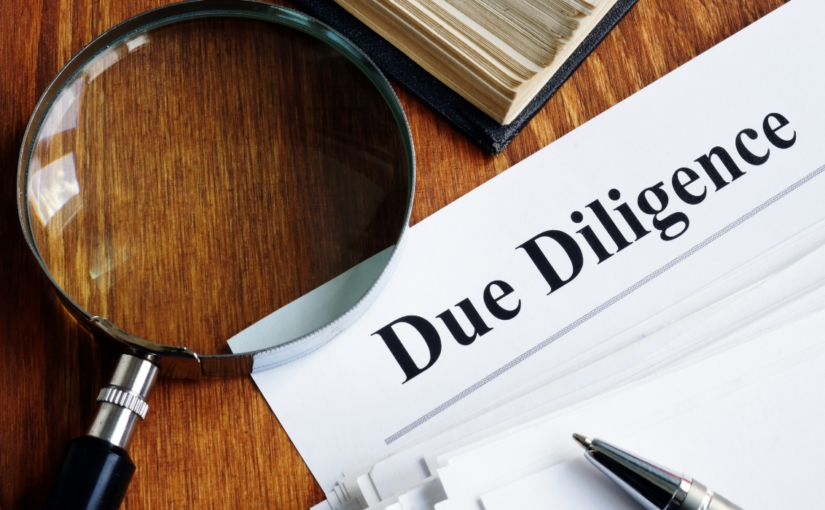back
The Importance of Due Diligence in Financing Office Buildings
01-2023

In order to finance office buildings, due diligence is an essential step. Prior to making an investment, it entails conducting a thorough investigation and evaluation of the property to make sure both the building and the investment are sound. Because it can aid in identifying potential risks and opportunities and ultimately result in a successful investment, due diligence is crucial for both buyers and lenders.
Due diligence gives investors the chance to decide on the property with knowledge, which is one of its main advantages. Investors can learn more about the building’s value, possible risks, and growth opportunities by conducting a thorough investigation of the building and its neighborhood. The building may fit well with an investor’s investment objectives based on this information, and it may also be possible to determine whether the financing terms are advantageous.
Due diligence also aids in identifying potential problems with the property, which is a bonus. Investors can find out if there are any problems that could lower the building’s value or make it more difficult for them to get a return on their investment by carefully inspecting the building and going over its financial and legal records. This includes issues with zoning, unpaid liens, environmental dangers, structural flaws, and judgments or liens that are still in effect. Early detection of these issues allows investors to work with the seller or lender to negotiate a lower purchase price or have them addressed before the investment is made.
As it enables them to assess the risk of the loan, due diligence is crucial for lenders as well. Lenders can more accurately determine the risk of a default on a loan by carefully examining the building and the borrower’s financial and credit history. These details can assist lenders in determining the loan’s terms, including the interest rate and loan-to-value ratio, as well as in spotting any potential warning signs that might point to a higher default risk.
Due diligence includes not only a financial and legal analysis, but also a visual inspection of the property. This entails examining the building’s systems and parts, such as the plumbing, electrical, and HVAC systems, as well as the roof, walls, and foundation. A physical inspection can aid in identifying potential problems that might have an impact on the building’s value or the investor’s capacity to realize a return on the investment, such as the building’s poor condition, problematic systems, or signs of wear or damage.
Reviewing the lease agreements and the building’s tenant mix as part of their due diligence is important for buyers as well. Understanding the building’s financial performance, the lease terms, and the tenants’ creditworthiness will be made easier for the buyer as a result. Additionally, this will aid the buyer in comprehending potential risks associated with tenant churn and future income streams.
It’s crucial for buyers and lenders to conduct extensive research and evaluation of a property before making an investment because due diligence is a crucial step in the financing of office buildings. Investors can work with the lender or seller to negotiate a lower purchase price or to address potential issues by foreseeing them early on. In addition to assisting lenders in assessing the risk of the loan, due diligence can also assist investors in better understanding the value of the property as well as any potential risks and areas for growth. Investors and lenders can increase the likelihood of a successful investment by investing the time in due diligence, which will allow them to make more informed decisions.
Reviewing regional market trends and conditions is a crucial component of due diligence. The local economy, demographics, and real estate markets should all be thoroughly investigated. Investors can better understand the potential for growth of the property and the likelihood of locating tenants or buyers in the future by having a better understanding of the local market conditions. Additionally, this information can assist investors in identifying potential risks that could affect the value of the property or their ability to earn a return on their investment, such as a declining population or a sluggish economy.
Reviewing the building’s operating costs and revenue is part of doing your homework. Analyzing past revenue and expenditures for the structure as well as making projections for the future are part of this. Investors can better understand the cash flow and growth potential of a property by learning about the financial performance of the building. This data can also assist investors in identifying potential risks, such as high maintenance costs or low rental income, which could have an impact on the property’s value or the investor’s capacity to earn a return on their investment.
To sum up, the process of performing due diligence is essential when financing office buildings. Making informed decisions, spotting potential problems, and ultimately raising the likelihood of a profitable investment are all made possible by this. Buyers and lenders should perform thorough due diligence, which should include financial and legal research, physical inspections, a review of the lease agreements and tenant mix, an assessment of the local market, and an analysis of income and expenses. They can reduce risks and make better-informed choices as a result, which will result in an office building investment that is profitable.
F2H Capital Group is a debt advisory firm specializing in negotiating the best terms for your commercial real estate projects. The company offers a range of financial products and services, including fixed loans, bridge loans, and construction loans across all asset types. Please contact us for any of your financing needs.

